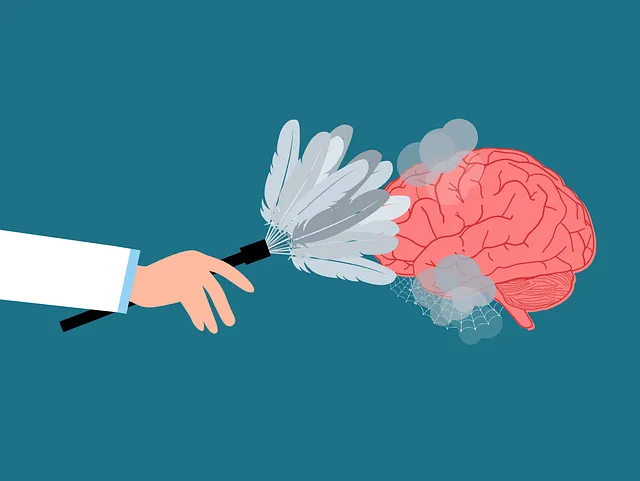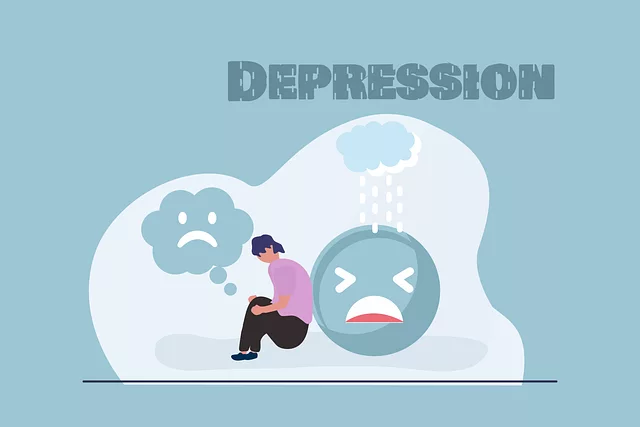Kaiser Permanente's behavioral health providers in Golden are tackling the stigma surrounding mental illness through empathy, compassion, and awareness initiatives. They offer evidence-based treatments, community outreach, and wellness journaling to empower individuals, reduce discrimination, and normalize mental health support. By integrating mental health into primary care, advocating for inclusive policies, and educating communities, they're revolutionizing mental healthcare, ensuring everyone has access to necessary support without societal barriers.
Mental illness stigma remains a significant barrier to effective mental healthcare, impacting millions worldwide. This article delves into strategies to reduce this pervasive social issue. We explore the profound effect of stigma on seeking treatment and highlight the critical role played by Kaiser Permanente behavioral health providers in championing mental wellness.
By understanding the roots of stigma, we can implement powerful tactics to foster acceptance. Discover effective approaches tailored for organizations like Kaiser Permanente, aiming to create a ‘golden’ standard in mental illness support.
- Understanding Stigma and Its Impact on Mental Health Care
- The Role of Kaiser Permanente Behavioral Health Providers in Reducing Stigma
- Effective Strategies for Promoting Mental Illness Stigma Reduction
Understanding Stigma and Its Impact on Mental Health Care

Stigma surrounding mental illness can be a significant barrier to individuals seeking help and accessing quality care. It often manifests as negative attitudes, beliefs, and stereotypes about people with mental health conditions, leading to discrimination and social isolation. This stigma can severely impact an individual’s willingness to disclose their struggles and pursue treatment, potentially exacerbating existing symptoms. The consequences are far-reaching, affecting not just the affected person but also their support networks.
At Kaiser Permanente, behavioral health providers play a crucial role in tackling this challenge. They employ empathy building strategies and compassion cultivation practices to foster an environment of understanding and acceptance. By promoting Mental Health Awareness, these professionals help dispel myths and misconceptions, encouraging early intervention and recovery. Golden opportunities arise when communities come together to support mental wellness, ensuring that those facing mental health issues feel seen, heard, and valued.
The Role of Kaiser Permanente Behavioral Health Providers in Reducing Stigma

Kaiser Permanente behavioral health providers play a pivotal role in reducing stigma surrounding mental illness in Golden and beyond. Through their dedicated work, they offer essential mental health awareness and mental wellness journaling exercise guidance, empowering individuals to understand and manage their conditions effectively. By providing empathetic support and evidence-based treatments, these providers foster an environment where seeking help for mental health concerns is normalized.
In addition to direct care, Kaiser Permanente behavioral health professionals actively engage in community outreach programs, utilizing innovative strategies to build empathy towards those struggling with mental illness. Their efforts contribute significantly to breaking down societal barriers and encouraging open conversations about mental wellness, ultimately transforming perceptions and promoting a more inclusive society where everyone has access to the support they need.
Effective Strategies for Promoting Mental Illness Stigma Reduction

Effective strategies for promoting mental illness stigma reduction involve a multi-faceted approach. Kaiser Permanente behavioral health providers play a crucial role in this process by providing accurate information and quality care. They can destigmatize mental health issues through education, ensuring the community understands that mental illnesses are just as real and treatable as physical ailments. Integrating mental health into primary care is another powerful strategy, making access to support more convenient and reducing barriers to treatment.
Beyond individual efforts, advocacy and policy changes are vital. Mental Health Policy Analysis and Advocacy groups push for inclusive legislation that protects individuals with mental illnesses from discrimination. Mental Health Awareness campaigns in communities and workplaces further normalize conversations around mental health. Additionally, Risk Management Planning for Mental Health Professionals helps ensure a safe environment where providers can offer the best care without fear of stigma-related repercussions, fostering an overall supportive ecosystem.
Mental illness stigma reduction is a complex yet essential aspect of improving mental healthcare access and outcomes. By understanding the profound impact of stigma, we recognize the critical role that organizations like Kaiser Permanente play in fostering inclusive environments. The efforts of their behavioral health providers in Golden are invaluable, utilizing evidence-based strategies to dispel myths and promote empathy. Through education, open dialogue, and supportive services, these initiatives ensure that individuals seeking help for mental health concerns feel welcomed and supported, ultimately contributing to better public health outcomes.






